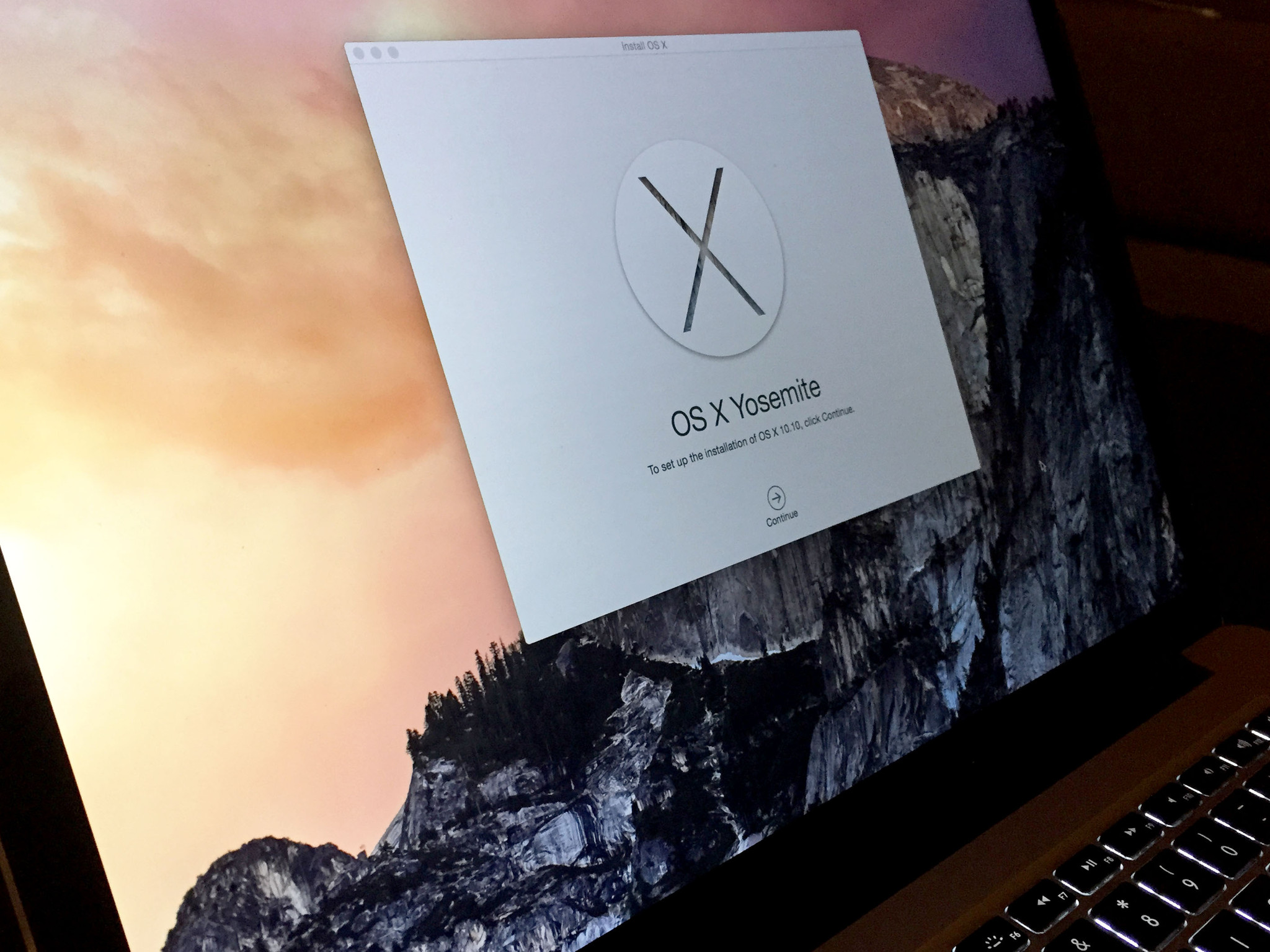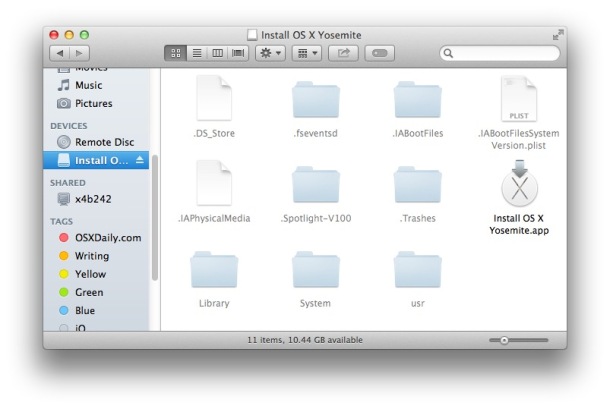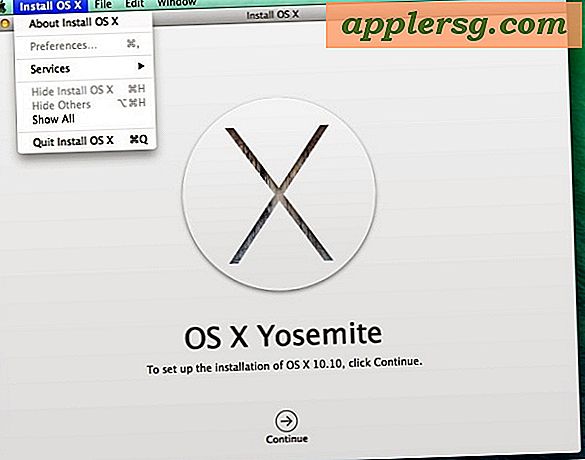- Aug 29, 2014 This will make the USB drive bootable. Start the install of Yosemite and agree to the user agreement. Then click “Show All Disks.”. Select your thumb drive and click “Install.
- How do I make a bootable Yosemite installer? OS X Yosemite can be installed on older models of MacBooks. To create a bootable installer, you’ll need a flash drive with a minimum of 8GB of free space.
- Verify the Installation Files are present. Head over to your Applications folder and check that there is a file which says Install Yosemite. Prepare a USB Flash Drive (Must be 8Gb or larger) Plug the USB Drive in to your Mac and open “Disk Utility” (found under applications / utilities in finder) Select the USB Drive; Select the Erase tab.
I recommend making one for Yosemite, on an external hard drive or USB thumb drive, for many of the same reasons I recommend making a bootable Mavericks installer drive: If you want to install.
The all now OS X 10.10 Yosemite is out now and its a free upgrade like Mavericks. It’s very simple task to upgrade an exsisting os to Yosemite with “App Store”. It’s actualy one click away from Yosemite. But if you need to install a fresh copy of Yosemite into your macbook, you will need either a DVD installer or a Bootable Yosemite installer.
Why a fresh install


Many people says slow issues after upgrading to old version Mavericks. And after upgrading some of your already installed apps wont work. Keeping a USB installer drive is a good idea to use it for recovery or troubleshooting purposes. And if you have one bootable installer, you can use it with your other Macs to install the Yosemite. It really really helps you by avoiding downloading the Yosemite installer file in each Mac.
What to backup
Before you start installing Yosemite, you should backup all the important data to an external resource. Installing the OS X is a kind of formatting your Mac. The process will wipe out the entire Hard disk. And more thing, you done need to backup or note a product key like windows product key in your mac. Mac doesn’t ask any product key while installing. Your Apple hardware is the product key for all your OS X installations.
OS X Yosemite hardware requirements
You should check wether your current hardware is compatible with Yosemite. Minimum ram required for Yosemite is 2GB. But 4 GB or higher is recommended for best performance. A hard disk space of 40GB is recommended for installing Yosemite with ease. Please note your entire HDD will wipe out while installing the Yosemite.
- Macbook air late 2008 or later
- Macbook Pro mid 2007 or later
- Mac mini early 2009 or later
- iMac mid 2007 or later
- Mac Pro 9 early 2008 or later
Making a USB installer is an easiest task if you already downloaded the Yosemite installer “.App” file. For downloading the file you should go to the “App Store” and then select the “Updates” tab on the top right position. Click on the “free upgrade” option for downloading the Yosemite installer file. The app file size will be 5.16GB as i can see here. Now the installer file is downloading to the /Applications directory.
You need a 8GB or higher capacity USB pen drive which formatted as “Mac OS Extended (journaled)”
Prevent auto deleting the downloaded file
After completing the download you should copy the downloaded file from /Applications directory to somewhere (i.e. to desktop). Because the downloaded file will automatically delete after starting the automatic upgrade process. Make sure you copied to a different directory. The downloaded file name and extension should look like Install OS X Yosemite.app. Now you are not far from create bootable usb of yosemite.
Create bootable usb of yosemite
Now all set for create bootable usb of yosemite. Here in my case, i copied the Yosemite installer file “Install OS X Yosemite.app” to my “Desktop”. And my 16gb USB drive name is “Sandisk” and its plugged to my Mac. Now open the terminal and execute one command to make the stuff.

NB: Make sure you give a different name for your USB drive than the your main HDD of your Mac.
Execute the below command to create bootable usb of yosemite. Done forget to change the directory names with yours.
sudo /Users/Sreekanth/Desktop/Install OS X Yosemite.app/Contents/Resources/createinstallmedia –volume /Volumes/Sandisk –applicationpath /Users/Sreekanth/Desktop/Install OS X Yosemite.app –nointeraction
After 10 to 20 minutes your all new OS X Yosemite bootable USB installer will be ready.
For more about OS X Yosemite visit Apple
A previous commenter on our How To Speed Up Your Mac article noted that the biggest speed up they experienced for their Mac was to re-install OS X from scratch from a USB disk. Whilst this is a bit disappointing because it’s one of the things I had hoped to escape when I made the switch from Microsoft Windows all those years ago, it makes a fair bit of sense – particularly if you’re one who often plays with software then deletes it again like I do for reviewing stuff, since lots of cruft gets left laying around… (I tried using Parallels Desktop 10 to run an alternative OS X platform for doing my reviews – it was too slow).
The process isn’t all that straight forward and the commenter asked if we would do a How To, so here it is.
The first thing you need to do, as with any major undertaking you might do with your Mac, is to BACK IT UP. Get yourself a Time Capsule from Amazon, eBay or (if you’re in Australia) somewhere like JB Hi-Fi and back up your Mac using Time Machine. Or check out our article about Crashplan if you prefer not to shell out exorbitant amounts of money on a Time Capsule. We can’t stress this enough – you must back up your Mac before continuing. The process outlined below will delete all your data. Everything. Kaboom. So back it up.
While your Mac is backing itself up somehow, go to the Mac App Store and download Yosemite. It’s a big download and if you’re in Australia like me it’ll take a while thanks to our ageing infrastructure and lack of government foresight to get us into the 20th Century of broadband (but I digress into a political debate). DONT OPEN IT. The download will create a link in your Applications folder called ‘Install OSX Yosemite’. Don’t open it yet. Doing so will install Yosemite indeed, but it’ll be an upgrade over the top of what you already have and it’ll delete itself after it’s re-installed. This is not what we want if we’re putting it on a USB. If it opens automatically, simply close it.
You’ll need an 8Gigabyte USB key – which you can pick up at just about any corner store these days.
Mac Os Yosemite Usb Installer
Plug the USB key into your Mac and if necessary re-format it using Disk Utility so that Yosemite can be written to it. To do this, open Disk Utility, select the USB key on the left and choose the Erase Tab. Choose Mac OS Extended (Journaled) and leave the title as ‘Untitled’ for now. The process of putting Yosemite onto the USB key will rename it anyway.

Now we’re (unfortunately perhaps) going to have to get a little bit familiar with the Terminal application. Open up Terminal (its under Applications -> Utilities if you’ve never used it before). The instruction you need to type assumes you have simply downloaded the ‘Install OS X Yosemite’ application into your applications folder. You’ll need to modify the locations if you’ve managed to download it somewhere else.
sudo /Applications/Install OS X Yosemite.app/Contents/Resources/createinstallmedia –volume /Volumes/Untitled –applicationpath /Applications/Install OS X Yosemite.app –nointeraction
The sudo command at the beginning will ask you for your login password. If your Mac logs in automatically, it’s the same password that you may have used in the pop up windows that occasionally come up when you install new programs.
The createinstallmedia command will give you some (fairly inaccurate) feedback about how far through the process it is, but you can expect it to take anywhere up to 20 minutes depending on how quick your Mac can read from the internal disk and write to the external USB which are typically quite slow. Don’t interrupt the process – don’t turn off your Mac, don’t pull out the USB key, don’t eject the USB key from Finder. Doing so will corrupt the flash key and you’ll need to start again. The process is finished when you see ‘Copy Complete. Done’ in the terminal window.
That’s the hard part over with. Now you need to reboot your Mac ( hope you’re reading this on an iPad or something similar so you can still follow while you reboot! ).
As soon as you hear the Mac bootup ‘Chime’ hold down the Option (or Alt) key and select the USB drive (which should be an orange colour). Double click the icon with the mouse or use the cursor keys to move to that image and then press Enter. This will start the Yosemite Installer, which may take a few minutes depending on the speed of your USB key. When everything is started you’ll see an Installer screen with a number of options. You need to choose the Disk Utility option first of all. If you miss this step you’ll end up just installing Yosemite over itself and you won’t benefit from a fully clean install. When Disk Utility is started click on Macintosh HD (or whatever your internal hard drive is called that you’re going to install Yosemite to) – it’s probably the top drive listed. Just as you did for the USB key, do now for the hard drive – i.e., choose the Erase Tab, choose Mac OS Extended (Journaled) and set the title to whatever you want. This will erase all your files from that disk. Everything. You did backup didn’t you?
Once that process is complete, Exit Disk Utility and choose Install OS X – choosing the freshly erased Hard Drive when the installer asks you.
Once everything is finished and you reboot, you’ll see your shiny new Yosemite install and if your Mac was anything like mine, you’ll probably think you have a new machine too because mine was considerably faster after a fresh install.
